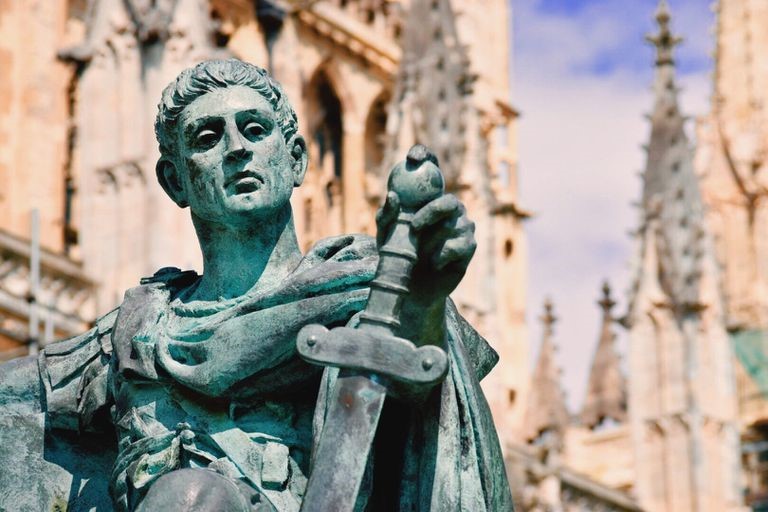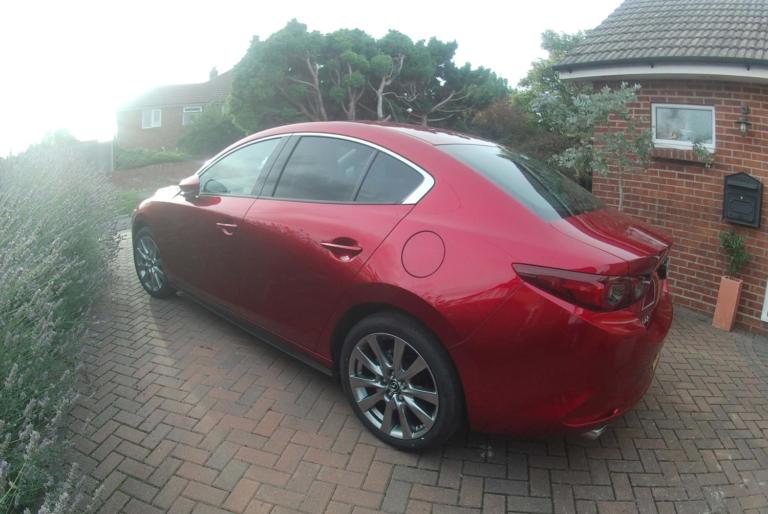Contrary to popular opinion, the reclining figure that sits outside of York Minster’s South Transept is NOT a statue of The Jolly Green Giant. It is in fact that of a very casual representation of former Roman Emperor and (kinda) local lad, Constantine the Great. But what was he doing here in York, and what made him so “Great”? We delve in, looking at how he got started, and covering the rest of his life next month.
Flavius Valerius Constantinus was born in Dacia Ripensis (now Serbia) in 272 CE. His father, who, confusingly, had the exact same name, was a prominent officer in the Roman Army. It’s unknown if he and Constantine’s mother, Helena (later ‘Saint Helena’ – St. Helens Square, anyone?), were actually married, or if she was simply his concubine. But either way, the younger Constantine spent very little time with his father growing up.
A tale of two Emperors
You see, at this point in Roman history, things were a little weird. The Empire was essentially split in two, with one Emperor (or ‘Augustus’) ruling in the West, and another ruling in the East. Each of these emperors had a ‘Caesar’, or deputy emperor, and the process of ascension was a very political issue with the power being won by promotion rather than being passed from father to son.
In 293 CE Constantius, Constantine’s father, rose to the rank of Caesar of the Western Empire, and so, as was the practice, his son was sent East to study and train in the court of the Eastern Emperor, Diocletian. He was something of a happy hostage; there to ensure that his father behaved himself and didn’t raise an army against the East.
While there Constantine was schooled in philosophy and became a military tribune, leading campaigns against barbarians and Persians for Diocletian. The young lad earned himself quite a reputation as an impressive soldier and leader and was seen by many as an obvious contender for the role of future Emperor.

Go west
However, Emperor Diocletian soon stood down, to be replaced as Augustus by Galerius… who really didn’t like how popular Constantine had become. Instead of promoting him to Caesar, as was expected, Constantine was overlooked. Galerius then started sending Constantine on dangerous missions, resulting in several near-death incidents. Realising Galerius was out to get him, Constantine decide to make a break for it.
Waiting until the Emperor was good and drunk, he asked Galerius to go and assist his father in Britannia. Galerius agreed, sort of, and seizing the opportunity Constantine high-tailed out of there. He rode as fast has he could, knowing he had only until Galerius sobered up and realised his mistake. By the time he did, our hero was already hundreds of miles away, heading for the English Channel.
After crossing into Britannia, Constantine headed north to a certain legendary fortress known as Eboracum. There he met his father, now Western Augustus, who was busily campaigning against the Picts to the north in Scotland. So he joined him in a bit of good old native murdering. Good, wholesome, father and son fun.
Cometh the time…
However, after only a year together, his father, Constantius, died here in York in 306 CE. As he was so popular, and because it seemed the logical choice given his experience, Constantine was proclaimed the Emperor in a ceremony conducted by a respected Vandal King in Constantius’ service, Chrocus.
Constantine then sent a letter to his now equal, Galerius, informing of him of his father’s death and his own ascension to Augustus. As that ascension was technically illegal, as no other Augustus or Caesar was consulted, Constantine claimed that his men had “forced it upon him”. Yeah, right. Also, to really rub Galerius’ nose in it, Constantine sent him a portrait of himself dressed in regal robes.
This properly miffed Galerius, who attempted to burn the portrait, but he was calmed by his advisors. They knew that if Galerius outright objected to Constantine’s position, it would certainly mean a civil war, with Constantine possessing the largest army. And so the two Emperors exchanged false pleasantries and stared at each from across the entire Roman Empire.

Something was bound to kick off. Find out what, next month.









Add a comment